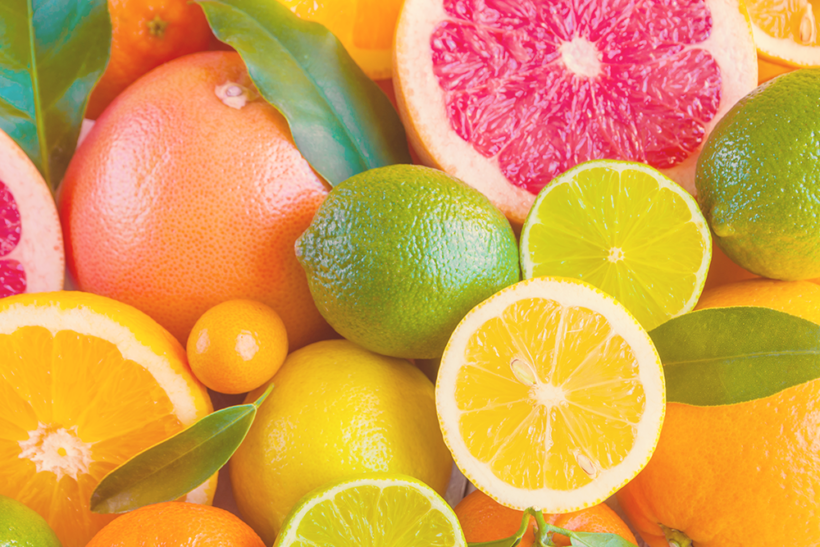There are 17 essential elements or nutrients required for proper plant growth, function, yield and quality. Carbon, Hydrogen and Oxygen make up over 90% of a tree’s biomass. The other 14 essential, mineral nutrients are categorized as primary (N, P, K); secondary (Ca, Mg, S) and micro (Fe, Mn, B, Zn, Cu, Mo, Cl, Ni). These categories indicate the relative amounts of each nutrient required to achieve successful plant growth and yield.
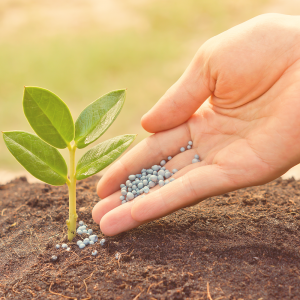
Do not misinterpret these categories to mean the micros are less important to plant metabolism and yield than the macros. The difference between Fe and N is the amounts required, not their importance. In fact, Fe, for example, is a micro nutrient, but a deficiency can result in total plant or crop loss. The micros are not less important.
Generally speaking, if any nutrient element is severely deficient, fruit quality and yield are adversely affected. This is exactly the reason BGI developed with growers, manufacturers and university research a species specific, prescription based fertilizer that will meet all the citrus tree’s nutritional needs.
The goal of any fertilizer program is to supply an adequate, balanced amount of essential nutrients in an available form in a timely manner to achieve in the case of citrus – a high yielding quality fruit.
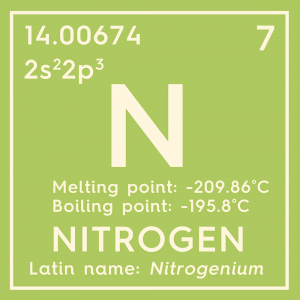
Let’s briefly describe the critical roles a few of these nutrients play:
N – Nitrogen influences growth and quality more than any other nutrient. If your tree canopy is hollow or thin; if older leaves are prematurely falling off (should stay on 1-2 years); if foliage is pale and chlorotic (yellowing), you are Nitrogen deficient. Yield will be severely reduced.
K – Potassium deficiency results in fruit quantity and size reduction and lower juice quality. Insufficient Potassium results in slow vegetative growth and thin foliage on top.
Fe – Iron deficiency creates an interveinal chlorosis pattern on younger leaves. It occurs in alkaline (high pH) and waterlogged soils.
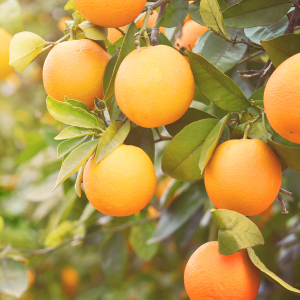
These are just three examples of nutrient deficiency effects and outcomes.
There are no one size fits all fertilizers. All plants have different nutritional requirements. If any one essential element drops below a critical availability threshold, fruit yield and quality and tree growth will suffer – even if all of the other elements are available in adequate amounts.
Having a deficiency of one nutrient in the plant can also cause a negative interaction; whereby it inhibits the plant’s ability to take up other nutrients that are adequately available. And this is precisely the reason Citrusgain – a species specific complete balanced nutrition fertilizer was developed. In school professors referred to this nutritional balance concept as Law of the minimums or Liebig’s law.
THE BGI BOTTOM LINE
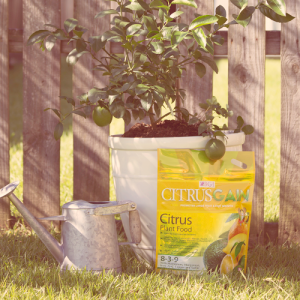
You reap what you sow. The relationship of yield and nutrient supply has been documented for a long time. Scientists call it the yield response curve. BGI wants the homeowner and citrus grower to be high on that curve. While other factors like irrigation, pests and cultivar are important, balanced and adequate nutrition is critical to success.
A healthy high yielding, high quality fruit, color, shape, size, and juice are your success.
An excited, joyful customer harvesting and enjoying and consuming the fruit of her labor is BGI’s goal.
So, balance, quantity and availability are critical goals in a citrus fertilizer.
If your desire is to have your trees climb high on that curve of yield response, use CitrusGain and expect high yields and exceptional quality!
Take care,



